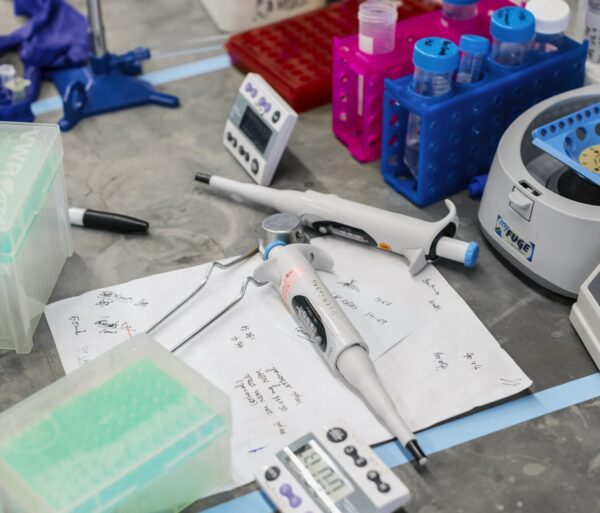Goal: to increase understanding of the interaction between the olfactory system and hippocampus and determine why these areas are affected in many cognitive disorders
While mainstream science accepts that smell affects behavior, I want to figure out how it happens,” said Dr. Leslie Kay, an assistant professor of psychology and a member of the Institute for Mind & Biology at the University of Chicago. “If odors didn’t change behavior or emotions, all the perfume companies would be out of business,” she said.
With her Brain Research Foundation seed grant, Dr. Kay planned to study the brain activity of rats to understand the connection between the olfactory system—which controls the sense of smell—and the hippocampus—which plays a role in emotion, attention and memory processing—when responding to various odors.
When a rat is aroused or attentive to an odor, it will sniff faster, causing a respiratory change. Dr. Kay believes this is a behavioral result of a hippocampal (attentive) response to the odor, and each exposure will result in reproducible odor-specific behaviors. Her experiment was to induce this behavior by exposing the rats to a series of relevant odors, such as those of predators and food. Dr. Kay planned to look for changes in electrical activity (oscillations) of a large population of neurons in the olfactory bulb and hippocampal region of the rats, measured by electrodes implanted in their brains.
By observing how smell and behavior are cognitively linked, Dr. Kay was to then measure the oscillations on a deeper level. She was to again expose the rats to odors, and record oscillations simultaneously at different depths in the brain. The study looked at the role that respiratory changes induced by attention and arousal play in each case. It also observed and recorded the abnormal seizure-like dynamics produced during exposure to noxious odors.
Dr. Kay’s experiments might have not only increased understanding of the interaction between the olfactory system and hippocampus, but could ultimately determine why these areas are affected in many cognitive disorders. An early symptom in Alzheimer’s and Parkinson’s diseases, and other disorders that affect cognitive processing, is a decreased ability or inability to recognize odors because of degeneration of the olfactory and hippocampal systems. Dr. Kay predicts a day when Alzheimer’s or Parkinson’s disease could be diagnosed through a more finely tuned series of smell tests than those in use today.



